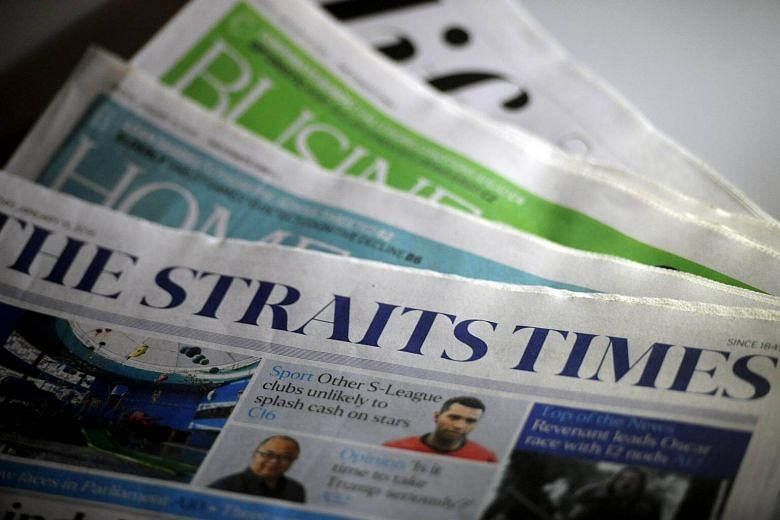BEIJING • The #MeToo movement in the United States, which has exposed alleged widespread sexual assault and harassment in Hollywood, resonated thousands of miles away in China.
Women quickly began to speak out about sexual harassment, but rather than celebrities leading the chorus of disapproval, as in the West, the Chinese movement is centred on college campuses.
Ms Luo Qianqian is being credited as the first Chinese woman to evoke the spirit of #MeToo. Early this month, she accused Professor Chen Xiaowu, from Beihang University in Beijing, of sexual assault when he was her doctoral adviser in 2005.
She then contacted fellow alumni who had endured similar experiences, and provided evidence to the college's disciplinary watchdog, including damning audio recordings. As a result, Prof Chen was fired last week.
Other women followed suit. Within days, three more cases had been brought to public attention, all involving female college students who claimed to have been sexually assaulted or harassed by lecturers.
The most recent allegations were made anonymously by a graduate of the University of International Business and Economics in Beijing, who said the strength shown by Ms Luo and the other women had inspired her to speak out.
She alleged that a male professor sexually assaulted her in his office. To back up her claims, she posted online text messages exchanged with him after the alleged assault.
A study released in 2014 by the All-China Women's Federation suggested that the problem is worryingly prevalent in China.
The federation surveyed 1,200 female students at 15 universities; in response, 50 per cent said they had been subjected to sexual misconduct, either physical or verbal, while 23 per cent described the situation as "severe".
In most cases, the aggressor was male and usually a classmate, though 9 per cent claimed they had suffered at the hands of lecturers or college officials.
Research released last March by the Guangzhou Gender and Sexuality Education Centre showed 70 per cent of college students and graduates claimed to have been sexually harassed, with women accounting for 75 per cent of the victims. The findings were based on 7,000 responses to online questionnaires.
Many experts hope the #MeToo movement will change the situation and also help to remove the stigma often attached to women who speak out against sexual abuse.
Ms Cai Yiping, a campaigner for economic and gender equality in Beijing, said women have remained silent about sexual harassment for decades for fear of not being taken seriously or being blamed for the man's behaviour.
Harassment often happens in environments where the balance of power is unequal, she said. "A boss can decide an employee's future; a professor can stop a student from graduating; and men have a greater say than women in a male-dominated society."
Last week, Ms Luo and more than 100 Beihang students and alumni decided to send an open letter to the head of the university.
In addition to calling for a ban on intimate relations between teachers and students who share educational relationships, they suggested training courses should be established to provide greater awareness of ways of preventing sexual harassment.
They also called for the formation of an independent body to ensure that investigations are conducted fairly.
CHINA DAILY/ASIA NEWS NETWORK

